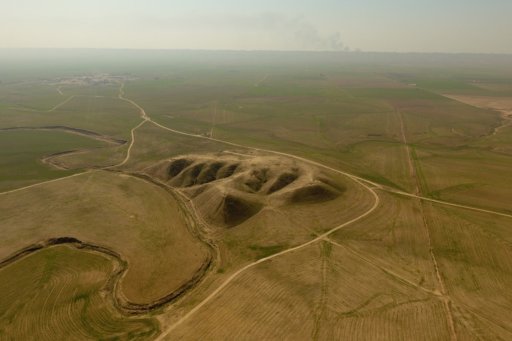A professor at the Collège de France since 2007, Thomas Römer spent four years as vice-president of the assembly and five years as director of the Institute of Civilizations before being appointed administrator of the Collège, effective September 1 , 2019, by decree of the President of the Republic, following his election by the Collège de France Assembly. Reappointed in September 2022, and again elected by his colleagues at the Collège de France Assembly in June 2025, he begins a third 3-year term on September 1, 2025.
After serving as Associate Professor at the Faculty of Theology of the University of Geneva, Thomas Römer became Ordinary Professor of Hebrew Bible at the Faculty of Theology and Religious Studies of the University of Lausanne in 1993, where he was Dean from 1999 to 2003. He has held visiting professorships at the theological faculties of Montpellier, Neuchâtel, Paris, Zurich and Mexico City, as well as at the Center for Theological and Social Studies in Managua, and was guest director of studies at the École pratique des hautes études (Ve section) in 1999-2000. Since 2007, Thomas Römer has been Professor of The Hebrew Bible and its Contexts at the Collège de France. His opening lecture was "The horns of Moses. Bringing the Bible into history" on February 5 2009.
Thomas Römer is the author of over four hundred scientific publications: articles, scholarly works, editions, etc., including La première histoire d'Israël : L'École deutéronomiste à l'œuvre (Labor et Fides, 2007), L'invention de Dieu (Seuil, 2014) and Aux origines de la Torah : nouvelles rencontres, nouvelles perspectives (Bayard, 2019), the latter in collaboration with Israel Finkelstein. He published a commentary on the story of Abraham in 2023: Genèse 11,27-25,18. L'histoire d'Abraham (Labor et Fides) He has also helped disseminate his research to the general public, through the publication of books such as Dieu Obscur (Labor et Fides 2024, 4th ed.) La Bible, quelles histoires ! (Bayard, 2014), Les 100 mots de la Bible (Que sais-je, PUF, 2024, 3rd ed.) or L'Ancien Testament (Que sais-je, PUF 2024, 2nd ed.).
Thomas Römer co-directed with Israël Finkelstein the excavations at Qiryat Yéarim in 2017 and 2019, which have attracted a large audience, as shown by the documentary L'Arche d'alliance, aux origines de la Bible produced for the ARTE channel and the Israeli channel KAN.
From 2013 to 2024, Thomas Römer directed the joint research unit 7192 Proche-Orient-Caucase : langues, archéologie, cultures (CNRS/Collège de France/École pratique des hautes études). A member of the Académie des inscriptions et belles-lettres since 2016, as well as of numerous editorial boards of prestigious scientific journals and collections such as Encyclopedia of the Bible and Its Reception, Zeitschrift für die alttestamentliche Wissenschaft Ancient Israel and its Literature, Journal of Biblical Literature and Semitica, of which he is the director, he has received numerous awards, he has received numerous awards, notably in France (the prize for the history of religions awarded by the "Les amis de Pierre-Antoine Bernheim" foundation, Honorary doctorate of the Catholic University of Lyon), South Africa (Professor Extraordinary, Faculty of Religious Studies, University of Pretoria), Switzerland (Cultural Award of the Leenaards Foundation, Award of the University of Lausanne) and Israel (Honorary doctorate from Tel Aviv University). Thomas Römer is a Knight of the National Order of the Legion of Honor and Commander of the Order of Arts and Letters
Thomas Römer's research focuses on the birth of the Bible in the context of the ancient world. From a history of religion perspective, his approach is characterized by a philological and literary analysis of the texts, in dialogue with the history and archaeology of the ancient Near East. This approach highlights the function of texts in their original environments, responding to issues of identity, culture, society and politics. This has enabled him to propose new historical syntheses, notably on the formation of the Pentateuch and biblical historiography, or on the origins of gods and their cults in the ancient kingdoms of Israel and Judah.


